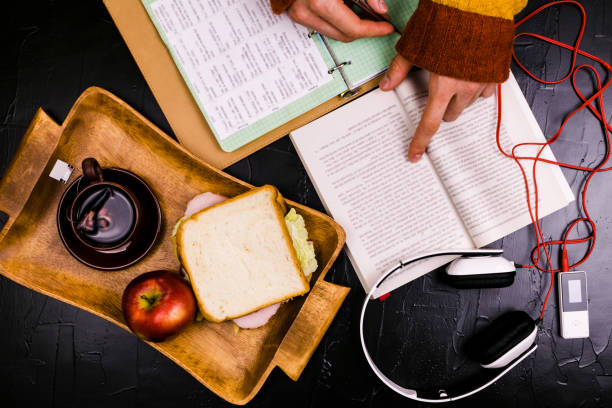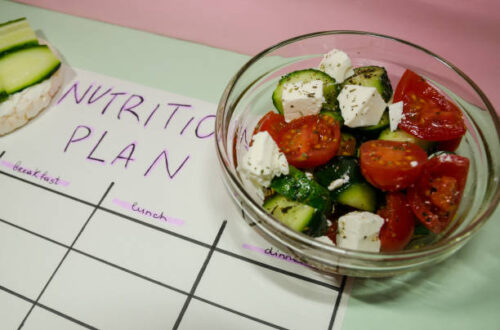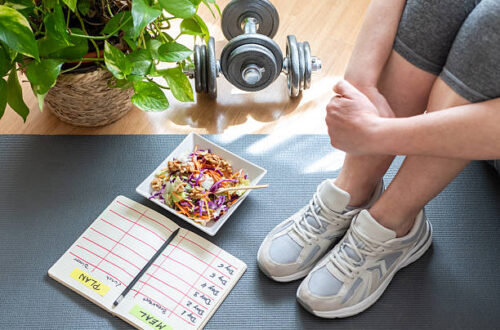The dreaded exam season is here. You’re fueled by late-night study sessions, the buzz of caffeine, and the temptation of quick, easy junk food. But what if the secret to acing your exams isn’t just about cramming more notes? What if it’s about what’s on your plate? A smart diet does more than make you feel good. It helps boost your focus, sharpens your memory, and keeps your energy steady when you need it most.
Forget complicated recipes or expensive ingredients. This is a simple, effective, and budget-friendly diet plan designed to help students fuel their brains for peak performance. We’ll show you exactly what to eat, when to eat it, and why it works, so you can walk into your next exam with confidence and a clear mind.
The Student Diet Challenge: Why It Matters
Contents
Let’s be real: student life is a marathon, and what you eat can be the difference between a sprint to the finish line and running out of steam halfway through. The typical student diet of instant noodles, energy drinks, and fast food may save time now. But it can hurt your study efforts later.
- Brain Power: Your brain is a high-energy organ, using about 20% of your daily calories. It needs a steady supply of good nutrients, not quick sugar spikes, to stay focused and remember information. Junk food causes your blood sugar to rise fast and then crash, leading to that “brain fog” that makes concentrating almost impossible.
- Energy Levels: Foods high in fiber and healthy fats digest slowly. This provides lasting energy, helping you dodge the mid-afternoon slump. When your body is fueled with the right stuff, you won’t need to nap after every meal.
- Stress and Mood: Exams are stressful. What you eat can directly affect your mood and stress levels. Nutrient-rich foods can boost your mood, lower anxiety, and improve sleep. These factors are crucial for doing well in school.
By making a few smart food swaps, you can transform your energy, your focus, and your semester.
The Golden Rules of Exam Season Nutrition
Before diving into the daily plan, remember these three golden rules to guide your food choices:
- Eat Regularly: Your brain needs a constant supply of energy. Skipping meals can cause your blood sugar to drop, leading to fatigue, irritability, and a lack of focus. Aim for three balanced meals a day with a couple of healthy snacks in between.
- Stay Hydrated: Dehydration can significantly impair concentration, short-term memory, and mood. Keep a reusable water bottle with you while you study and sip from it all day. Aim for at least 8 glasses of water a day.
- Go for “Brain Foods”: Focus on foods rich in Omega-3 fatty acids, antioxidants, and complex carbohydrates. These nutrients help build and repair brain cells. They also provide the energy needed for long study sessions.
A Brain-Boosting Daily Diet Plan for Students
This plan is designed to be easy, affordable, and flexible. It uses simple foods that you can find at any grocery store and prepare with minimal equipment.
The Power of a Brain-Boosting Breakfast
Breakfast is the most important meal of the day, especially during exam season. It wakes up your brain and provides the fuel for a productive morning study session.
- Option 1: Oatmeal with Berries. Oats are a fantastic complex carb that gives you long-lasting energy. Top them with a handful of blueberries or strawberries, which are packed with antioxidants that protect your brain cells. Add a sprinkle of walnuts or almonds for healthy fats and an extra boost of brain power.
- Option 2: Scrambled Eggs on Whole-Wheat Toast. Eggs are a complete protein source and contain choline, a nutrient crucial for memory and focus. The whole-wheat toast provides sustained energy. You can cook eggs in just a few minutes, making this a perfect quick breakfast.
- Option 3: Greek Yogurt Bowl. Start with a bowl of plain Greek yogurt for high-quality protein and gut-friendly probiotics. Mix in some fresh or frozen berries and top with a spoonful of nuts and seeds for a filling and delicious meal.
Lunch: The Mid-Day Recharge
Avoid the “afternoon crash” with a lunch that’s both filling and light enough to keep you focused.
- Option 1: The Ultimate Tuna Sandwich. Canned tuna is a cheap and easy source of Omega-3s. Make a sandwich on whole-wheat bread, add some leafy greens like spinach, and slice up a tomato for a vitamin boost. You can use a little Greek yogurt instead of mayonnaise for a healthier option.
- Option 2: Simple Bean and Rice Bowl. This meal is a student staple for a reason. Beans are rich in fiber and plant-based protein, which keeps you full and focused. Mix canned black beans with brown rice and add some corn and salsa for a simple, flavorful meal.
- Option 3: Leftover Chicken and Quinoa Salad. If you cooked chicken for dinner the night before, chop it up and mix it with leftover quinoa, a handful of greens, and a simple vinaigrette dressing. It’s a quick meal that’s packed with protein and nutrients.
Dinner: The Memory Builder
This meal should be nutrient-dense to help your brain recover and process all the information you’ve studied during the day.
- Option 1: Baked Salmon with Steamed Broccoli. Salmon is a top-tier brain food due to its high Omega-3 content. Broccoli is full of vitamins that support brain function. This meal is easy to make and digests well, ensuring a good night’s sleep.
- Option 2: Chicken and Veggie Stir-Fry. Use chicken breast for lean protein and lots of different veggies like bell peppers, carrots, and onions. Cook it all in a pan with a little soy sauce or teriyaki sauce for an easy, delicious meal that’s great for getting a variety of vitamins and minerals.
- Option 3: Simple Lentil Soup. Lentils are incredibly cheap and filling. Cook a pot of lentil soup with some carrots and celery for a warm, comforting, and nutrient-rich meal. It’s a perfect option for those cold study nights.
Smart Snacks and Drinks for Study Sessions
Late-night study sessions are a reality, but that doesn’t mean you have to rely on sugary energy drinks and chips. Your snacks should be fuel, not a distraction.
Student-Friendly Snacks
- Handful of Nuts: Almonds, walnuts, and cashews are packed with healthy fats and protein to keep your brain sharp. A small handful is all you need to curb hunger and boost focus.
- Greek Yogurt: The protein helps curb hunger, while probiotics can improve gut health, which is linked to better mood. Add a few berries for flavor and antioxidants.
- Apple Slices with Peanut Butter: This classic snack combines sustained energy from the apple with the healthy fats and protein from the peanut butter. It’s an ideal choice for a mid-afternoon study break.
- Dark Chocolate: A small piece of dark chocolate (70% or more cacao) can be a great study treat. It contains flavonoids, which are antioxidants that can improve blood flow to the brain and give you a little mental fit.
- Hard-Boiled Eggs: Boil a batch of eggs at the beginning of the week for a quick and easy grab-and-go snack that’s loaded with protein.
Smart Drink Choices
- Water: The most important drink of all. Staying hydrated is crucial for brain function and energy.
- **Green Tea**: Has a bit of caffeine for a light boost. It also contains L-theanine, which helps you relax without feeling sleepy. This combination can help improve focus and concentration.
- A Cup of Coffee: A single cup of coffee can help you stay alert, but it’s important not to overdo it. Too much caffeine can lead to anxiety and jitters that make it hard to concentrate.
- Herbal Tea: A great option for winding down after a long study session. Teas like chamomile can help you relax and get ready for sleep, which is just as important as studying.
What to Avoid During Exam Season
To perform your best, try to limit or avoid these foods and drinks:
- Sugary Drinks and Energy Drinks: These give you a quick energy spike, but it’s always followed by a crash that will leave you feeling worse than before. They offer no real nutrients and can lead to anxiety.
- Highly Processed Junk Food: Foods like chips, cookies, and fast food are low in nutrients and high in unhealthy fats, sugar, and salt. They can leave you feeling sluggish, tired, and bloated.
- **Excessive Caffeine:** A cup of coffee can help, but too many can cause problems. You might feel tired, then jittery. This makes it hard to stay focused.
- Simple Sugars: While a little sugar is okay, eating too many sweets can cause a blood sugar roller coaster. Stick to natural sugars found in fruits and honey.
Beyond the Plate: The Lifestyle Connection
Fueling your brain for exams isn’t just about what you eat; it’s also about how you live. The foods on our list will give you a great foundation, but to get the best results, you need to combine them with smart lifestyle choices. Think of your diet, sleep, and physical activity as a powerful three-part team working together to help you succeed.
The Importance of Sleep 😴
You might think pulling an all-nighter to cram for a test is a good idea, but it’s not. Sleep is when your brain actually stores and organizes all the information you learned during the day. When you’re tired, it’s hard to focus and remember things. Your body also craves quick energy boosts, like sugar and caffeine. Aim for 7-9 hours of sleep per night. If you can’t get that much, even a short 20-30 minute nap can help refresh your mind and improve your ability to learn. Think of sleep as the final step in a successful study session.
The Role of Physical Activity 🏃♀️
When you’re bogged down with books, exercise might seem like the last thing you have time for. But even a quick break can make a huge difference. Getting your body moving increases blood flow to your brain, which means more oxygen and nutrients to help you think clearly. It’s also a fantastic way to reduce the stress and anxiety that come with exam season. You don’t need a full gym workout. Try a 15-minute walk around campus, do some quick stretches in your room, or dance to your favorite song. A short burst of physical activity can break up long study periods and give you a powerful mental reset.
Mindful Eating 🙏
It’s easy to get lost in a textbook and mindlessly finish a whole bag of chips without even noticing. This kind of eating is not good for your body or your brain. During exam season, try to practice mindful eating. This means taking a short break from studying to focus only on your food. Sit down at a table, eat slowly, and pay attention to the taste and texture of your meal. This helps your body digest better, prevents you from overeating, and gives you a much-needed mental break from your work. By being present with your food, you’re not just feeding your body; you’re truly nourishing yourself.
Frequently Asked Questions
Q1: Are these foods expensive for a student budget?
The great thing about this plan is that most of these foods are very affordable. Items like oats, eggs, lentils, and bananas are some of the cheapest foods you can buy. Buying frozen or canned versions of foods like berries, fish, and vegetables can also save you a lot of money and prevent food waste.
Q2: What if I don’t have a kitchen to cook?
Many of these foods require very little cooking. Eggs can be microwaved, oats can be made with hot water from a kettle, and items like nuts, yogurt, and bananas don’t need any cooking at all. You can also get a small microwave or electric kettle for your dorm room to make many of these meals.
Q3: How can I stop eating junk food?
The best way to stop eating junk food is to not have it around. Stock your room and study space with healthy snacks from our list so that when you get hungry, a good option is the easiest one to grab. Also, make sure you’re eating regularly so you don’t get so hungry that you reach for the first thing you see.
Q4: Is a diet plan really necessary?
You don’t need a strict, complicated diet plan. But having a simple plan to include these healthy foods in your week will make a huge difference. Think of it less as a “diet” and more as a strategy to give your body and mind the best chance to succeed.
Q5: What about supplements? Should I be taking them?
While some supplements can be helpful, it’s always best to get your nutrients from whole foods first. Eating a balanced diet with a variety of fruits, vegetables, and lean protein will give you all the vitamins and minerals you need. Talk to a doctor or a registered dietitian before taking any supplements.
Final Thoughts
Being a successful student is about more than just intelligence and hard work—it’s about having the right fuel. Your body and mind are your most important tools for learning, and they need to be treated with care. By adding these simple and affordable foods to your diet, you are making a powerful investment in yourself. You’re not just eating for energy; you’re eating for a better GPA, a sharper mind, and a healthier, happier you. So, next time you’re heading to the grocery store, skip the junk food aisle and grab these brain-boosting heroes instead. Your future self will thank you.





